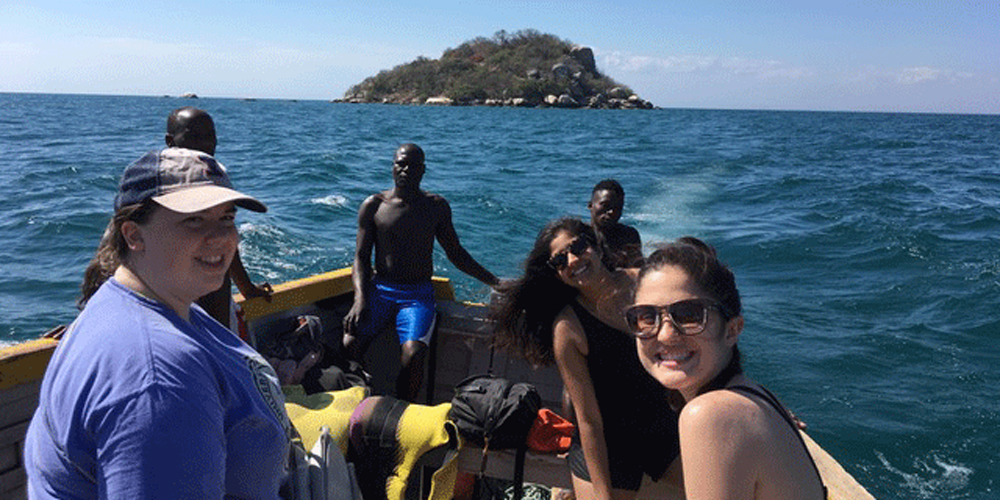Lizards, crocodiles, and some challenges

July 5 -7th
Fun fact: Malawi’s Independence Day is July 6th, just two days after ours! We appropriately celebrated both holidays at Senga Bay in Salima. We stayed at the Baobab lodge on Lake Malawi for two nights. The lodge served us breakfast every morning and always had music playing in the background. While we were there we took a boat ride to Lizard Island (pictured). It is an island supposedly only inhabited by lizards; however, when we went we only saw one! It was a little disappointing but the hike to the top made up for it. At the island, we also went snorkeling, which was like its own tropical fish tank in the middle of the lake.
Our second day in Salima was spent at a crocodile farm. This farm breeds over 16,000 crocodiles! Mainly they breed them for their skin as an export to Europe, while the meat is sold locally. To end our holiday weekend we celebrated by watching the Women's World Cup final; USA vs Netherlands. USA won 2-0!
July 8- 13th
Our fourth week on the field was faced with some challenges. To start Anoosha was sick for two days and couldn’t visit her communities. Next, my video equipment died during the discussions. Luckily our backpacks are equipped with solar panel chargers (pictured), for there is usually no electricity at most sites. I was able to set up the solar panel on top of our car for about two hours, which gave our equipment just enough charge for the next video showing. This challenge showed me how adaptable and flexible you have to be when doing extension in rural communities. Also, we had to rearrange/reschedule some of our video showings due to political demonstrations that were occurring in our areas. We took these precautions not only for our safety but for the safety of the farmers who would have to travel in order to make the meetings.
This summer, the Office of International Programs is sponsoring three undergraduate Food Security Fellows who are participating in experiential learning experiences related to global food security. These ACES students are based in Malawi and will be blogging regularly during their experience.
Specifically the students will be working with the ACES-based and USAID-funded Strengthening Agriculture and Nutrition Extension activity to deliver a video-extension campaign to smallholder farmers. Working with counterparts from Malawi, our students will provide technical support for the video work and collect data to evaluate the success of the campaign. They will gain on-ground appreciation for how rural development actually works and how a development project functions.
The ACES undergraduate Food Security Fellows are:
- Christina Fernandez, senior in natural resources and environmental sciences
- Kristin Iverson, senior in agricultural leadership and education
- Anoosha Memon, senior in agricultural and consumer economics